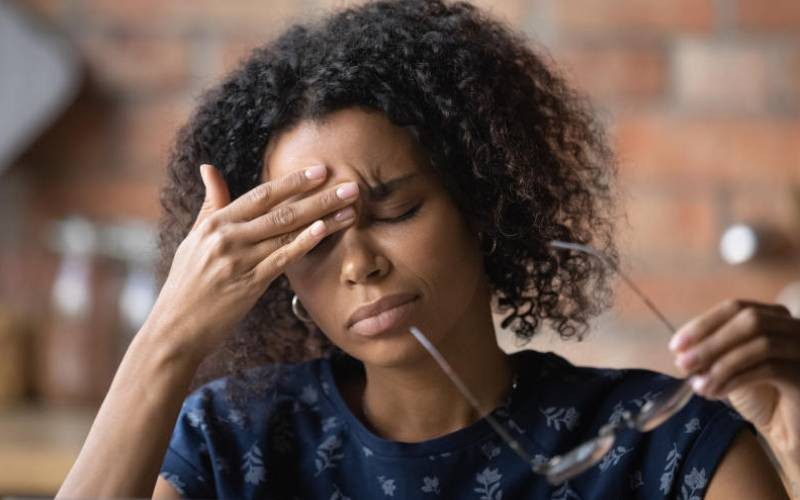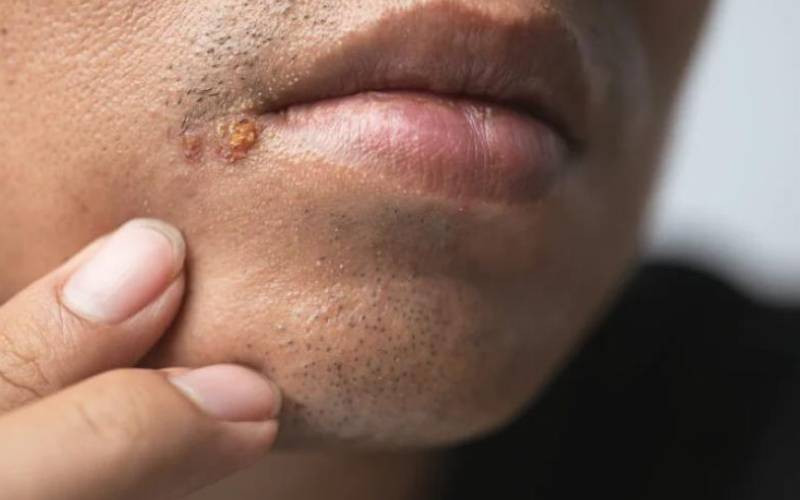
Tiny tots think it’s great fun to whirl around until they lose balance and fall down. And if we’re honest, most of us have felt the room spin when we’ve gone to bed after too much booze.
But when dizziness strikes for no obvious reason it’s no joke and can be really debilitating.
Not all types involve the sensation of movement – you may just feel light-headed or be unsteady on your feet.
But there’s good news. Andrew Clements, of Leicester Balance Centre, says: “Whether dizziness is a one-off or a longer-lasting problem, nearly everyone improves or at least is able to manage their symptoms with the right treatment.”
Here are seven reasons for a spinning head – and how to stop it:
Benign paroxysmal positional vertigo
Up to 50% of us will experience this inner ear problem (BPPV).
Andrew Clements explains: “It’s caused when debris from otoconia crystals (part of the mechanism by which we balance and sense gravity) fall into the wrong part of the ear.”
BPPV-related attacks last only a few seconds at a time but can be severe and recurrent.
Classic provoking movements are lying flat, turning over in bed, looking up (e.g. hanging washing) or bending down.
Feel better A set of head movements, called the Epey manoeuvre, will often solve the problem by moving the crystals back into the right place in the ear. You’ll need a GP or specialist to work through the movements with you, and your vertigo will get temporarily worse before improving.
Anxiety
If your swimmy head is teamed with other nervy symptoms, like restlessness, palpitations and a feeling of dread, the chances are it’s anxiety that’s the problem.
Feel better Exercising regularly, stopping smoking and cutting down on alcohol and caffeine will help. If you’re experiencing stress-related dizziness, breathe slower and deeper, and focus on a spot in the distance. Drink some water, as mild dizziness from dehydration may feel worse if you’re anxious.
Low blood pressure
Having low blood pressure can cause dizziness, particularly when you get up too quickly from a seated or lying position.
Feel better If you know you’re prone to this type of dizziness, always get up slowly. Having low blood pressure can be healthy, but rule out any underlying conditions with your GP.
Ageing
Dizziness and unsteadiness are more likely when the eyes, vestibular system of the inner ear and muscles are no longer working in harmony. Age-related cardiovascular problems can also cause dizziness by affecting blood flow.
Feel better Stay active – tai chi classes can help, according to the Vestibular Disorders Association. And talk to your GP about the prescription medicines you take because many have dizziness as a side-effect – there could be alternatives for you to try.
Anaemia
Pale skin, tiredness and fatigue are the usual symptoms associated with iron-deficiency anaemia, but dizziness is another.
Dietitian Dr Sarah Schenker explains: “The reason anaemia can cause a light-headed feeling is because there’s not enough iron to make red blood cells and haemoglobin that provide oxygen to the brain.”
Feel better. Get a blood test – if you’re anaemic, you’ll need to be prescribed a high-dose iron supplement. Iron-rich foods include lamb, beef, green vegetables and nuts. Avoid having a cuppa with meals as tea interferes with iron uptake.
Ear Infection
Bacteria and viruses can cause vertigo, nausea and temporary hearing loss through inflaming the inner ear, known as labyrinthitis.
Feel better Antibiotics will help if it’s bacterial, but for viral infections, medications that control the dizziness and nausea – for example strong antihistamines – are the only way to control symptoms.
Meniere’s disease
If you get dizziness attacks accompanied by a sensation of fullness in the ear and temporary deafness, you may have Meniere’s disease, which is caused by an increase in fluid pressure in the ear. Tinnitus (noises in the ear), hearing loss and balance problems can follow over months and years.
Feel better Treatment of Meniere’s is aimed at reducing and controlling symptoms with drugs and exercises. A low-salt diet can help by reducing the fluid build-up in the ear.
 The Standard Group Plc is a multi-media organization with investments in media platforms spanning newspaper print
operations, television, radio broadcasting, digital and online services. The Standard Group is recognized as a
leading multi-media house in Kenya with a key influence in matters of national and international interest.
The Standard Group Plc is a multi-media organization with investments in media platforms spanning newspaper print
operations, television, radio broadcasting, digital and online services. The Standard Group is recognized as a
leading multi-media house in Kenya with a key influence in matters of national and international interest.










